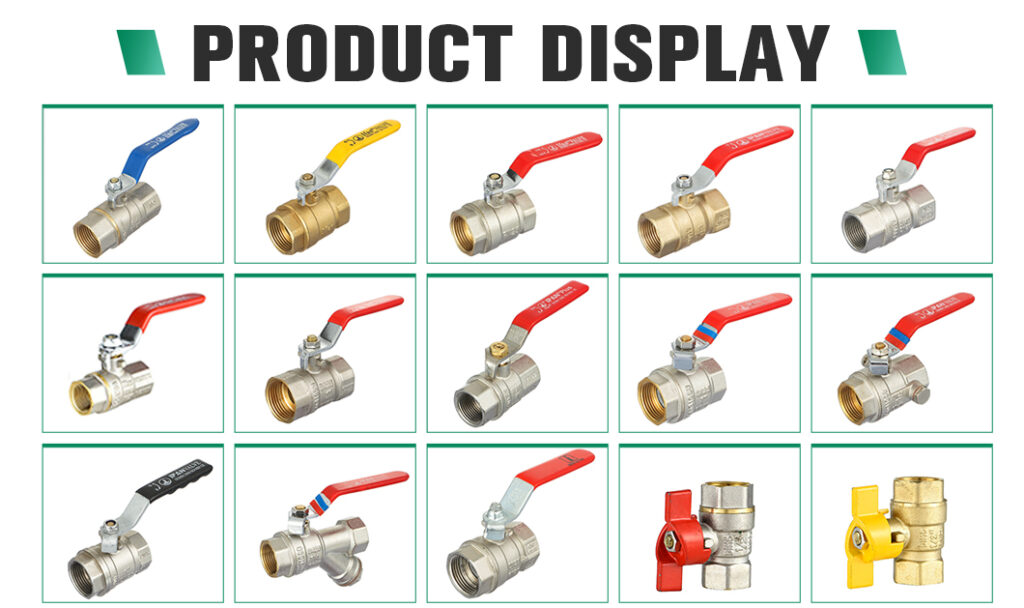Brass valves increase efficiency and reliability,Brass valves have long been the workhorses of plumbing systems, offering a combination of strength, durability, and versatility that makes them indispensable. In this article, we will delve into the applications, advantages, and various types of brass valves, showcasing their vital role in plumbing.IFAN factory has 30+ years of manufacturing experience supporting color/size customization support free samples.Welcome to consult for catalog and free samples. This is our Facebook Website: www.facebook.com
Brass Valves: A Versatile Plumbing Component
Brass valves are mechanical devices used to control the flow of fluids within plumbing systems. They are crafted from brass, an alloy primarily composed of copper and zinc. This alloy provides a unique combination of properties that make brass valves ideal for diverse applications within the plumbing industry.
Types of Brass Valves
1. Ball Valves
Ball valves are popular for their simple design and efficient flow control. They consist of a pivoting ball with a hole through it, which can be turned to allow or block flow. This design makes them excellent for shut-off applications, and they are often used in residential plumbing for fixtures like sinks and toilets.
2. Gate Valves
Gate valves are known for their precise control of fluid flow. They use a gate-like disc that moves up and down to control the flow rate. These valves are often employed in industrial settings and in situations where a gradual shutoff is needed, such as in water mains.
3. Check Valves
Check valves are one-way valves that allow fluid to flow in one direction but prevent it from flowing in the opposite direction. They are commonly used in sump pumps and in preventing backflow in plumbing systems.
4. Globe Valves
Globe valves are versatile and used for both throttling and frequent on-off applications. They have a globe-shaped body with a movable plug that controls flow. Globe valves are used in various industries, including HVAC systems and water treatment.

Applications of Brass Valves
1. Residential Plumbing
In homes, brass valves are extensively used in faucets, showers, and appliances. Their durability ensures they can handle the demands of daily use, and their ability to shut off quickly is a key advantage.
2. Commercial and Industrial Plumbing
In commercial and industrial settings, brass valves are crucial for handling high-pressure and high-temperature fluids. They are used in HVAC systems, fire protection systems, and in industrial processes that require precise control over fluid flow.
3. Water Treatment Plants
Water treatment plants rely on brass valves to manage the flow of water and chemicals throughout the treatment process. Brass’s corrosion resistance and durability are particularly important in this environment.
4. Agriculture
In agriculture, brass valves are used in irrigation systems to control the flow of water to fields and crops. Their resistance to harsh environmental conditions makes them an excellent choice for this application.
Advantages of Brass Valves
Corrosion Resistance: Brass valves are highly resistant to corrosion, which is crucial when dealing with water and various chemicals in plumbing systems.
Durability: Brass valves are known for their long service life, even in demanding conditions.
Versatility: With various types and sizes available, brass valves can be adapted to a wide range of applications.
Low Maintenance: Regular maintenance, such as lubrication and cleaning, can keep brass valves functioning optimally for years.
In conclusion, brass valves are integral to the plumbing industry due to their durability, versatility, and reliability. From residential homes to industrial plants, these valves play a crucial role in controlling the flow of fluids, ensuring the efficient operation of plumbing systems. Their enduring popularity is a testament to their effectiveness and the benefits they bring to plumbing applications.

